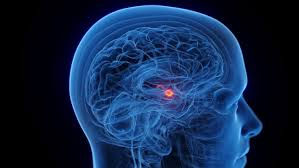Brain Series: The Role of the Reward Center in Eating Disorders
- support528742
- Jun 22, 2024
- 2 min read
Understanding the neurological basis of eating disorders, especially Anorexia Nervosa (AN), provides crucial insights into why individuals with AN struggle with eating. A significant aspect of this understanding is recognizing the reduced reward sensitivity and increased punishment sensitivity reported by those with AN, which implicates the function of the brain's reward circuits.
For people without AN, hunger is a biologically driven, motivational signal that drives food consumption. These individuals show an increased brain response after a meal when they satisfy their hunger and often eat a variety of foods they enjoy to do so. This response motivates eating and creates a sense of prediction and trust in decision-making. In contrast, individuals with AN often experience a decreased sense of reward and an increased sense of harm in eating, leading to the reinforcement of this reduced response in the brain's reward circuit when hungry. This suggests that hunger may not effectively motivate eating in those with AN, and thus explains the ability to restrict even when hungry.
The reward center in the brain is referred to as the ventral striatal dopamine circuit, which comprises the nucleus accumbens, central putamen, and central caudate nucleus.
The Nucleus Accumbens: Central to Processing Reward
The nucleus accumbens is responsible for identifying and evaluating rewarding and emotionally significant stimuli and generating an emotional response. It is central to processing reward, motivation, and goal-directed behavior. When the nucleus accumbens is not functioning well, it can result in:
Decreased enjoyment in life
Less satisfaction with achievements, requiring more effort to achieve the same reward effects
Decreased motivation
Ultimately, the altered neurocircuit response in the brain of someone with an eating disorder can "blind" them to motivation and sensations that inform their ability to know what to do, contributing to eating disorder symptoms. This altered brain function may manifest as a lack of pleasure when thinking about eating or after consuming food, or it might elicit a strong negative reaction such as "Yuck." The research shows that decreased Caudate response to taste is associated with increased harm avoidance.
This extends beyond food involving a broader dysfunction of the reward or motivational circuit that is seen in trait expression manifesting in stimuli outside of food. For example, when presented with a guessing game that examined Brain response when winning and losing money individuals with active AN showed an exaggerated response to losses compared to winning.
The Importance of Reward Centers in Guiding Actions
The reward centers in our brains play a crucial role in guiding our actions by signaling potential rewards and risks. For individuals with anorexia nervosa (AN), there is a tendency to be more motivated by the avoidance of negative consequences rather than the pursuit of rewarding outcomes. This often leads to difficulties in distinguishing between reward and harm, resulting in harm avoidance and challenges in trusting their own decisions.
Low reward sensitivity with food means low motivation for recovery. This is why understanding and addressing this issue is vital. Clients and their support networks need to understand that these challenges reflect a deficient, biologically based reward/motivation system rather than willfulness or stubbornness. Recognizing this can foster a more compassionate and effective approach to treatment and support.




Comments